Kenya
A Kenyan cult leader, Paul Mackenzie, has gone on trial for manslaughter following the deaths of more than 400 of his followers in what is considered one of the deadliest cult tragedies in history.
Mackenzie, who led the Good News International Church, faces charges including murder, child torture, and "terrorism." These charges stem from the discovery last April of hundreds of bodies, believed to be followers who starved to death under his orders.
Mackenzie had previously pleaded not guilty to multiple manslaughter charges in January. However, prosecutors plan to pursue these cases under Kenyan laws that address suicide pacts. On Monday, Mackenzie, along with more than 90 other suspects, appeared in a magistrate’s court in Mombasa.
Al Jazeera’s Stefanie Dekker reported from Mombasa, noting that Mackenzie appeared frail in court but still seemed to maintain a commanding presence among his followers. This trial has raised broader concerns about the lack of oversight on self-proclaimed pastors and religious figures in Kenya, a country where faith plays a significant role in daily life.
Prosecutor Alexander Jami Yamina told AFP that this case is unprecedented in Kenya, describing it as "very unique." Some witnesses are expected to give their testimonies in private due to the sensitive nature of the case.
The trial includes 55 men and 40 women, who were charged last month with "terrorism" related to the mass deaths in Shakahola. These suspects also face additional charges of murder, child torture, and cruelty, with prosecutors alleging that these crimes occurred between 2020 and 2023.
In March, authorities began releasing some of the victims' bodies to grieving families after months of DNA identification work. So far, 34 bodies have been returned.
The shocking case has prompted the Kenyan government to consider stricter regulations on fringe religious groups. Both the Kenyan Senate and a state-funded human rights organization have suggested that the deaths might have been prevented with better oversight.
In response, President William Ruto has established a commission to investigate the tragedy and review the regulation of religious organizations. The commission, which presented its findings last month, recommended a combined approach of self-regulation and government supervision for religious groups.



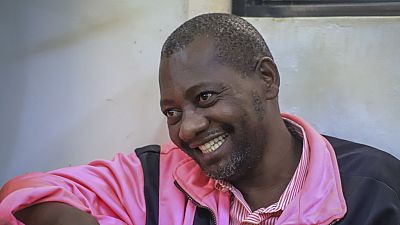

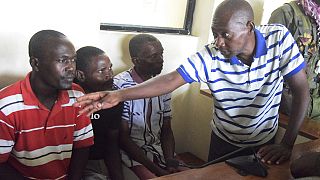
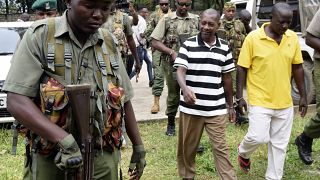
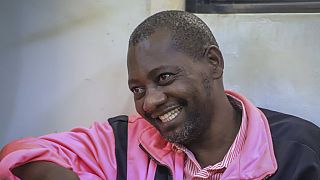

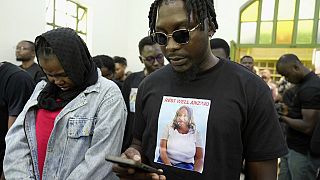
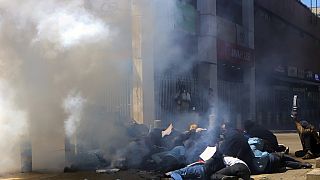



00:47
Ghana: President Mahama suspends Chief Justice Gertrude Torkornoo
Go to video
Police rescue 33 West Africans from a human trafficking scam in Ivory Coast
Go to video
Pope Francis' funeral scheduled Saturday April 26
Go to video
Uganda plans law to allow military prosecution of civilians
Go to video
Tunisia: new Human Rights Watch report finds dramatic increase in politically motivated arrests
Go to video
Al-Qaida-linked militants attack a strategic town in Somalia